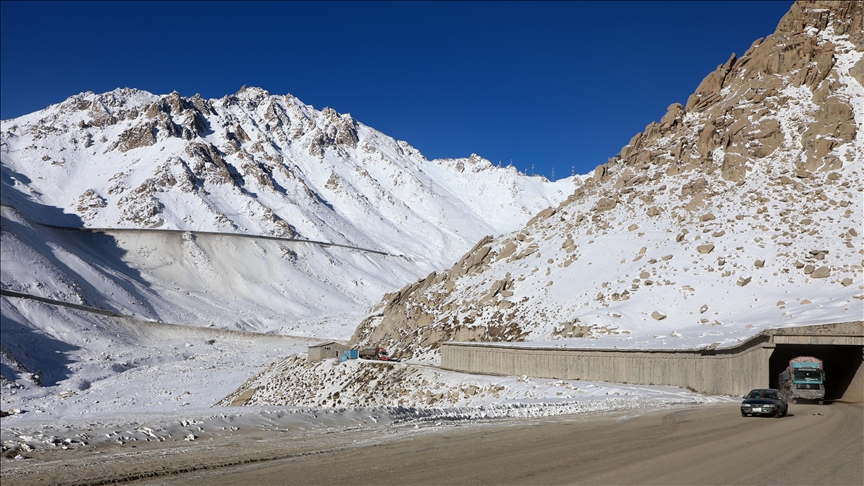Iran ups pressure on Taliban to resolve long-running water dispute
Iran accuses Afghanistan of restricting flow of water from border river by constructing dams
 A view from Hindu Kush Mountains ( Sayed Khodaiberdi Sadat Anadolu Agency )
A view from Hindu Kush Mountains ( Sayed Khodaiberdi Sadat Anadolu Agency )
TEHRAN, Iran
Iran has stepped up pressure on the Taliban government in Afghanistan to resolve a long-running dispute over shared water resources.
The dispute is centered around the Hirmand River, also known as Helmand River, that originates in the Hindu Kush Mountains near Kabul and streams into Iran's Hamoun wetlands in the Sistan-Baluchestan province after flowing through 700 miles.
Iran has over the years accused Afghanistan of restricting the flow of water from the river by constructing dams over it, a charge that Afghan authorities have denied.
According to a 1973 water-sharing pact between Tehran and Kabul, Afghanistan was required to allow an average of 820 million cubic meters of water per annum to Iran.
The issue has in recent weeks again become a subject of discussion with lawmakers calling on the government of President Ebrahim Raisi to take up the matter with the Taliban government in Kabul.
Speaking at a Cabinet meeting on Monday, Raisi tasked the ministries of foreign affairs and energy as well as a special envoy for Afghanistan affairs to "seriously pursue" the matter, terming it an "important issue."
In an interview with state TV on Tuesday, the Iranian president's special envoy for Afghan affairs, Hassan Kazemi Qomi, said the issue is being pursued with Afghan authorities and "will be settled this year.”
“The issue of the (1973) treaty is a legal issue, to which the Afghan government is committed and has declared its adherence. It must also implement the treaty,” he added.
He said only 27 million cubic meters of water reached Iran last year compared to the 820 million cubic meters Iran is entitled to under the water-sharing treaty.
In separate remarks on Tuesday, Iranian Energy Minister Ali Akbar Mehrabian said the government is taking "serious steps" to ensure proper implementation of the treaty.
He added that the Taliban authorities in Kabul are committed to operationalizing the water-sharing treaty, without providing further details.
Taliban Energy Minister Matiullah Abid, meanwhile, was quoted as saying by Afghanistan's Tolo News that Kabul is "committed to the treaty" with Iran, adding that water was allocated to Iran last year "based on the treaty.”
Last month, Iranian Foreign Minister Hossein Amir-Abdollahian said he discussed the issue of shared water resources with his Afghan counterpart Amir Khan Muttaqi on the sidelines of a conference in Samarkand, Uzbekistan.
The Afghan side, he asserted, "emphasized its commitment to Iran's water rights" and both sides "agreed to take immediate action" in this regard.
In July last year, the top Iranian diplomat had warned Afghanistan that the dispute could affect cooperation between the two countries, describing it as an “important index” of the Taliban government’s “commitments.”
Iran shared close relations with the Taliban before the group came to power in Afghanistan in August 2021. The water-sharing dispute and frequent cross-border clashes have created coldness in their ties.
Anadolu Agency website contains only a portion of the news stories offered to subscribers in the AA News Broadcasting System (HAS), and in summarized form. Please contact us for subscription options.







